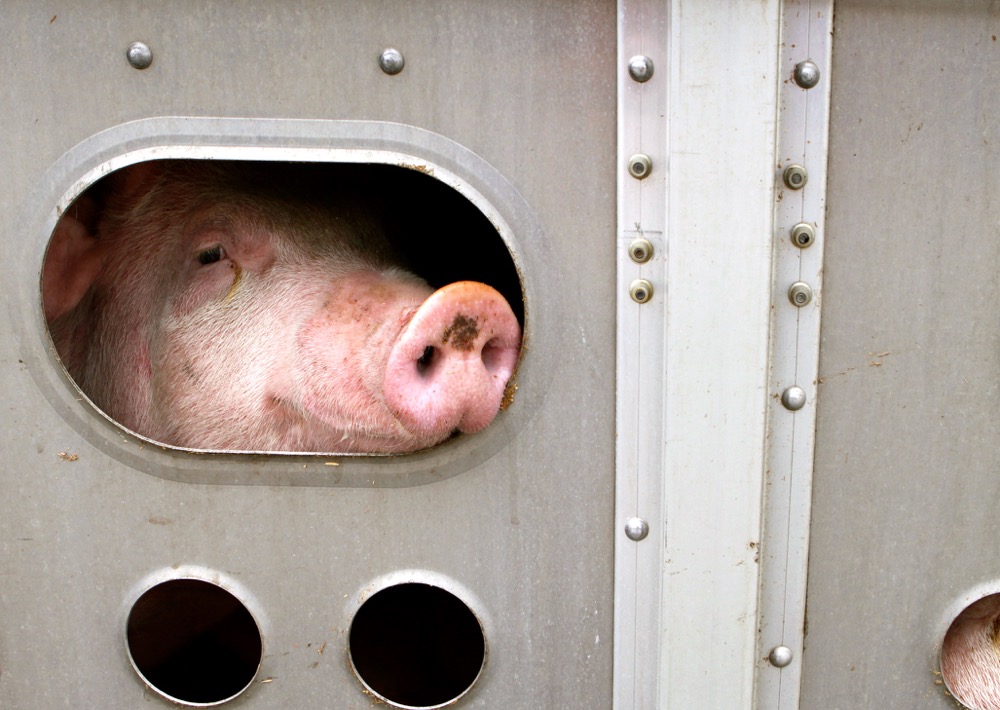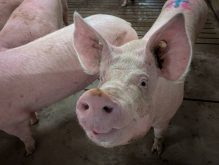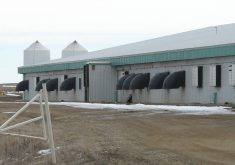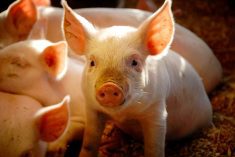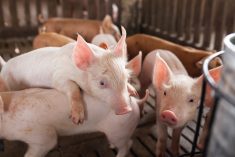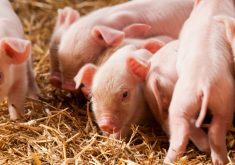Manitoba hog farmers whose barns are affected by the ongoing porcine epidemic diarrhea (PEDv) outbreak are running out of space to put the surviving pigs.
Five unaffected barns recently had to receive pigs from locations battling the virus due to space constraints, Dr. Glen Duizer of Manitoba’s chief veterinary office said last week.
While the pigs being transferred to other facilities are no longer shedding the virus, officials are still worried the virus could follow them to new barns.
“We’re still very early with that, so it’s hard to say whether any of these will become positive down the road,” Duizer said. “They, themselves, are undergoing ongoing monitoring after receiving the pigs and we will, as much as possible, keep surveillance in place to follow up on how those premises are doing.”
Read Also
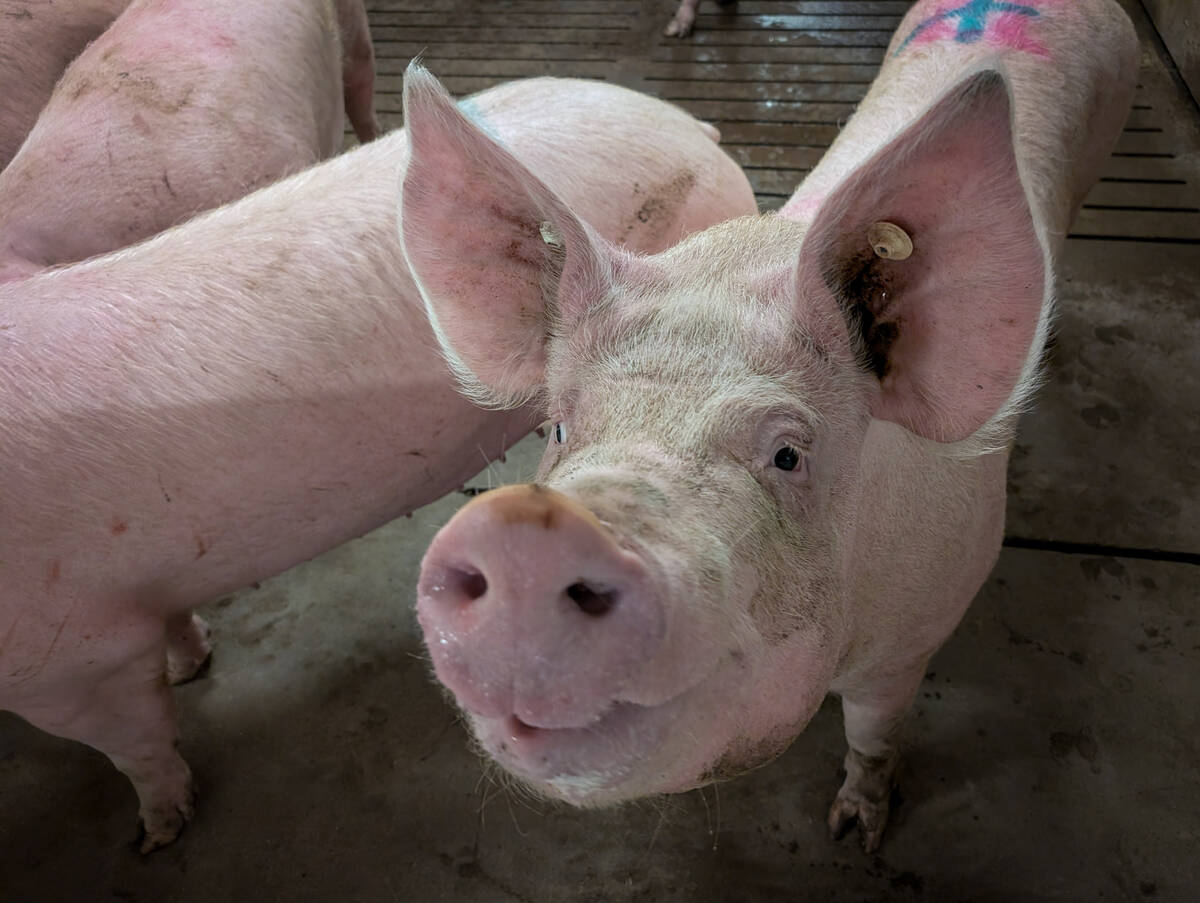
Manitoba Pork Council pitches levy increase
Manitoba’s pork producer group will gauge farmer response to proposed hog and weanling levy increases Feb. 12.
So far, the sector has limited animal movements to other infected facilities when possible. If pigs must be shipped to uninfected barns, there has been effort to stay within the five-kilometre high-risk buffers already set up around each confirmed PEDv case.
The chief veterinary office requires animals to go 35 days without clinical signs and have two back-to-back negative tests before allowing transport. The office also hopes to determine the baseline status of Manitoba’s farms to boost confidence that animal movements will not result in further infection.
Duizer stressed that a non-shedding status does not mean the barn is presumed negative for PEDv. Rather, it indicates that shipped animals are recovered or come from immune sows, the barn has an elimination strategy underway and internal biosecurity is isolating any sections of the barn where the virus may still be lurking.
“That is a transitional status that is meant to give us an idea of what risks we need to mitigate and address when we move those pigs,” Duizer said, adding that the system may be revisited in light of the most recent cases, confirmed in late July and early August.
The chief veterinary office estimates it may take between four and six months for a barn to be completely cleared of the virus.
Packing plants
Over 30 pig shipments from PEDv-positive farms have arrived at two federal packing plants in Manitoba in the first two weeks of August, a practice previously avoided in fear of contaminating Manitoba facilities with the virus.
“Those shipments, again, as much as possible, we’re looking at having them reach a non-shedding status or, at minimum, having a negative test,” Duizer said. “They are still treated as if they are positive premises and we are making sure that we monitor the transports, the companies. The packing plants are ensuring that there’s biocontainment.”
Both plants have segregated those shipments from the rest of the processing chain. Animals are queued for the end of the day or end of the week to minimize contamination risk. Transport and unloading space has been set aside for the shipments, and facilities are minimizing interaction between movements from PEDv-positive farms and those from elsewhere in the province.
The chief veterinary office is monitoring both plants. Duizer said there was no evidence of contamination as the first week of shipments closed.
Animals were previously shipped to packing plants in the United States, where the virus is already common.
Two more cases
Manitoba got a respite from the ongoing outbreak in mid-July when no new cases appeared July 15 to 26. The streak ended July 27, when a finisher operation in southeast Manitoba was added to the list of PEDv-positive premises, followed by another five days later. PEDv infections in Manitoba sat at 62 this year as of press time. No new cases had been confirmed since Aug. 1.
But while the outbreak has seen its first case in August, Duizer says the most recent infections were due to purposeful animal movement and not breaches in biosecurity.
“I think one of the things we want to reinforce on success is that when we’ve seen farms implement an aggressive outbreak-based biosecurity response, and I’m not saying that those need to be implemented 24-7 for the rest of the farm’s life or the rest of the premise’s life, but because there’s an outbreak in the area, their willingness to implement (those) kind of aggressive short-term biosecurity changes to protocols has appeared to be effective,” he said.
The highly contagious PEDv causes dehydration and has been known to kill between 80 and 100 per cent of infected sucklings while older animals will often recover.




